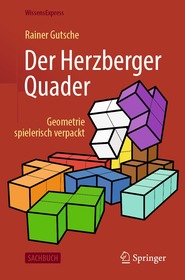
- Publisher's listprice GBP 31.99
-
15 283 Ft (14 555 Ft + 5% VAT)
The price is estimated because at the time of ordering we do not know what conversion rates will apply to HUF / product currency when the book arrives. In case HUF is weaker, the price increases slightly, in case HUF is stronger, the price goes lower slightly.
- Discount 8% (cc. 1 223 Ft off)
- Discounted price 14 060 Ft (13 391 Ft + 5% VAT)
Subcribe now and take benefit of a favourable price.
Subscribe
15 283 Ft

Availability
Not yet published.
Why don't you give exact delivery time?
Delivery time is estimated on our previous experiences. We give estimations only, because we order from outside Hungary, and the delivery time mainly depends on how quickly the publisher supplies the book. Faster or slower deliveries both happen, but we do our best to supply as quickly as possible.
Product details:
- Edition number 1
- Publisher Corwin
- Date of Publication 14 December 2025
- ISBN 9781071962985
- Binding Paperback
- No. of pages256 pages
- Size 254x177 mm
- Language English 700
Categories
Short description:
When brain science meets math success
Emotions drive learning. This is an essential component of understanding how a student’s math identity is closely connected to their math success. How a student sees themselves in relation to math is dynamically constructed in their brain and is constantly changing. Every learner deserves to exist in harmony with mathematics. This book shows you how to make that mantra a reality for all students.
Liesl McConchie offers an exciting new perspective on math identity through her extensive research on how the brain learns. Liesl walks readers through cognitive neuroscience in a humorous and friendly way, using metaphors and everyday stories to explain how emotions and cognition interact. She offers engaging and simple brain-based strategies and activities to implement in the classroom.
In Building a Positive Math Identity: A Brain Science Approach, Liesl
- Translates complex brain science principles for educators in an accessible and engaging way
- Provides practical exercises and lessons that you can use in classroom right away
- Shares real-world stories that provide deeper insight into how math identity is shaped over the years
- Offers activities to help teachers gain insight into the math identities of our students
- Guides teachers to explore our own math identity and the impact it can have on our students
Most important, the book pushes back on the prevailing message about math identity that tends to focus on student efficacy alone. This approach puts the burden on the individual, which can lead to additional oppression of those who have been most marginalized in math. Here’s our opportunity as educators to reexamine what it means to have a positive math identity--and to learn to use brain-based tools to build on a positive math identity for our students from the earliest ages.
MoreLong description:
When brain science meets math success
Emotions drive learning. This is an essential component of understanding how a student’s math identity is closely connected to their math success. How a student sees themselves in relation to math is dynamically constructed in their brain and is constantly changing. Every learner deserves to exist in harmony with mathematics. This book shows you how to make that mantra a reality for all students.
Liesl McConchie offers an exciting new perspective on math identity through her extensive research on how the brain learns. Liesl walks readers through cognitive neuroscience in a humorous and friendly way, using metaphors and everyday stories to explain how emotions and cognition interact. She offers engaging and simple brain-based strategies and activities to implement in the classroom.
In Building a Positive Math Identity: A Brain Science Approach, Liesl
- Translates complex brain science principles for educators in an accessible and engaging way
- Provides practical exercises and lessons that you can use in classroom right away
- Shares real-world stories that provide deeper insight into how math identity is shaped over the years
- Offers activities to help teachers gain insight into the math identities of our students
- Guides teachers to explore our own math identity and the impact it can have on our students
Most important, the book pushes back on the prevailing message about math identity that tends to focus on student efficacy alone. This approach puts the burden on the individual, which can lead to additional oppression of those who have been most marginalized in math. Here’s our opportunity as educators to reexamine what it means to have a positive math identity--and to learn to use brain-based tools to build on a positive math identity for our students from the earliest ages.
A provocative and enlightening read! By skillfully weaving together equity, brain research, and compelling stories, the author clearly demonstrates why this work is essential. This book offers a powerful, research-backed argument for understanding how students’ math identities are shaped—or undermined. A must-read for anyone dedicated to creating meaningful, high-quality math experiences that empower every learner. More
Table of Contents:
Dedication
Preface
Acknowledgments
Part I: How Emotion and Cognition Collide to Inform Math Identity
Chapter 1: What Is Math Identity
Chapter 1: Appendix
Chapter 2: The Relationship Between Emotion and Cognition
Part II: The Four Variables of Math Identity
Chapter 3: My Past Relationship With Math
Chapter 4: My Future Relationship With Math
Chapter 5: The Socio-Cultural Influences Affecting My Relationship With Math
Chapter 6: My Personal Relationship With Math
Part III: Applying What You’ve Learned to You and Your Classroom
Chapter 7: Your Own Math Identity as a Teacher
Chapter 8: Teaching Practices That Impact Math Identity
Chapter 9: Where We’ve Been; Where We’re Going
References
Index





